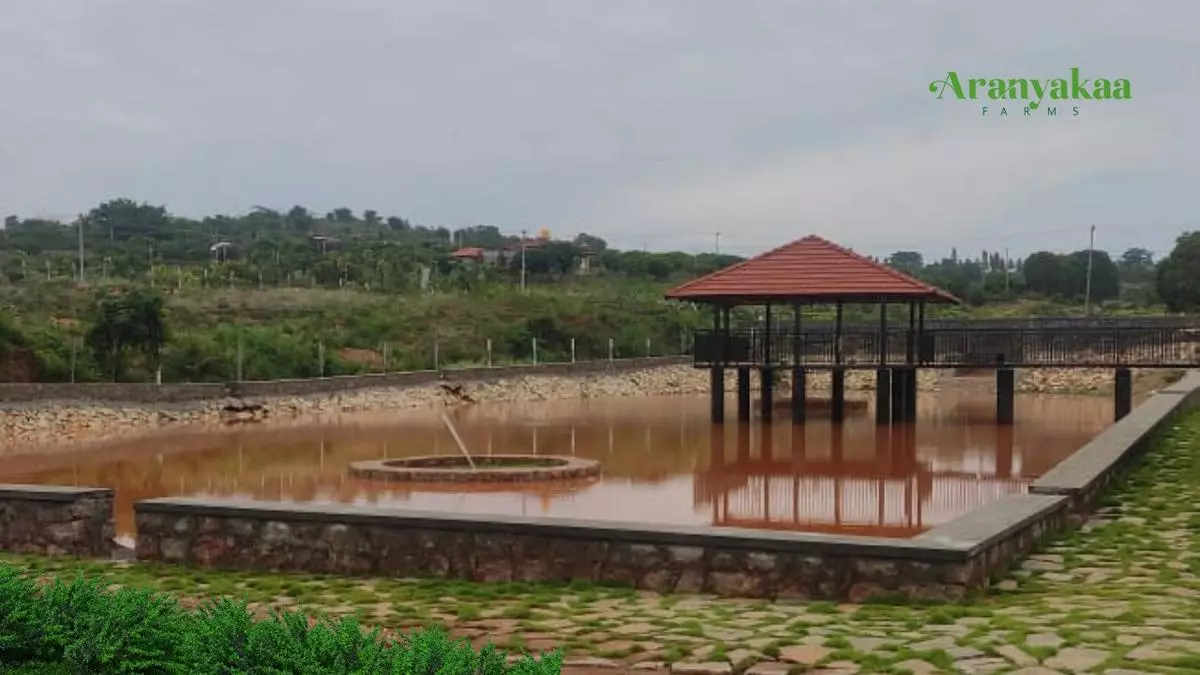Bengaluru-based firm attempting to bring unused farmlands back to life
A Bengaluru-based start-up is trying to bring unused farms back to life by buying these neglected lands, developing them and selling it to buyers who want to own farmlands.
The start-up, Aranyakaa Farms, has brought these lands, some of them neglected for over 3-5 decades, back to life by making them cultivable, says its director Amit Porwal. “Nobody stays there, no one does anything. Weeds grow and the lands turn dry. We have acquired uncultivated lands and made them cultivable.
Amit Porwal, Director, Aranyakaa Farms
| Photo Credit: Vidhya Thiagarajan
The second thing we do is to identify how to conserve natural resources and then go ahead with the agriculture activities,” Porwal told businessline in an online interaction.
How it all began
After the Covid pandemic, Porwal, who was running a real estate firm that is 11 years old, witnessed many people enquiring about agricultural lands. “People wanted to have something to do with agriculture, something to grow on their own farm, have a small farmhouse and be a little away from the city life,” he said.
That gave birth to Aranyakaa farms to take up large tracts of agricultural lands that had not been used for a long time. The company called up buyers who were looking for half an acre or an acre. “We ended up managing the entire operations from cultivation to irrigation to installing water harvesting facilities to make the land fertile and cultivable for a loner period of time,” said Porwal.
In the three years of its launch, the start-up has completed nine projects in Karnataka and Tamil Nadu. These farms are a hour-and-a-half drive away from Bengaluru. The company has developed about 500 acres with 450 buyers and planted 20,000 saplings. “Importantly, we have begun cultivation on lands that were lying idle for a very long period,” he said.
Water management
As regards water harvest and management, the company has constructed reservoirs to store water of about one crore litre. It can help recharge groundwater besides helping irrigation.
While taking over land, the firm first tries to understand what its investor would prefer. If someone wants a multi-crop plantation, it is provided with plans based on the soil and water quality. “We give them (buyers) a list of plants that are conducive to plantation in that area. We help them select, do the entire designing, plant the crop, provide drip irrigation and continue to manage the plantation for them,” said the Aranyakaa director.
The crop management includes de-weeding, soil application and taking care of the plant’s health besides providing updates to buyers.
The company tries to find out the reason for a plant to wilt if it does not survive. “We have a certain element of hospitality where each and every project will have a small area where the buyers can come, stay for a while and have food. We have staff to take care of this,” said Porwal.
Taking care of security
Apart from this, Aranyakaa takes care of the security of the land. It has based artificial intelligence-based camera systems on all its projects to take care of the land. “Even if the investor does not visit the farm for say 2-4 months, the owners need not worry about the security of their land,” he said.
Multi-cropping is done on the land. Plants such as mango, watermelon, papaya, pomegranate, custard apple, banana, avocado, wood apple, water apple and guava are cultivated for the buyers. “Most of the buyers prefer a variety of fruits. We usually give them more than 70-80 varieties of fruit trees to choose from. We also do timber plantation, including teak and mahagany, which is grown as a long-term timber investments,” the company’s director said.
Very few opt for vegetables, though they seek a kitchen garden with some seeking small patches to cultivate spinach, gourd, cucumber and tomato. Most buyers prefer to consume the produce grown on their farms. Any excess is either gifted to friends or sold.
Veggie farming
“Recently, we have started vegetable farming with a pooling concept with 7-8 buyers coming together,” he said, adding that the company collects maintenance charges for these farms.
On the cost of the land, he said for example, if a piece of land costs ₹70 lakh, the company charges over 50 per cent premium as it brings back the property to life, cultivates crops and provides water and security.
Most of the farming done is organic but sometimes certain pests or diseases could be solved inorganically only, he said.
An agriculture PhD, who has spent 50 years in the industry, supports the company’s farm operations, while graduates out of agricultural colleges are given jobs. Currently, it has a staff strength of 75.
Aranyakaa, which means from the forest, has been managed mostly through private funding. “Most of it is through internal accruals, though we have a few investors,” Porwal said, adding that people have begun to shun the 2016-17 attitude of chasing return on investments of agricultural land. “They are now looking for a sustainable life,” he said.
